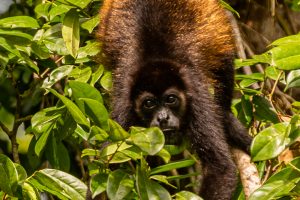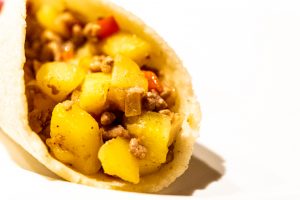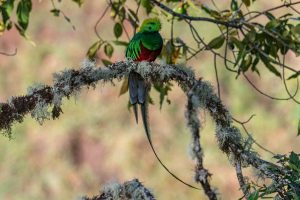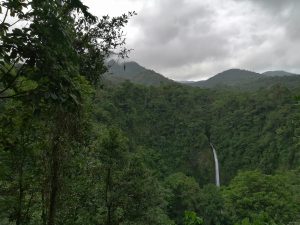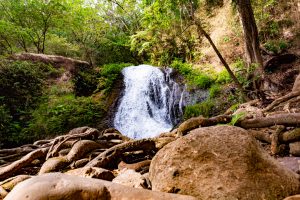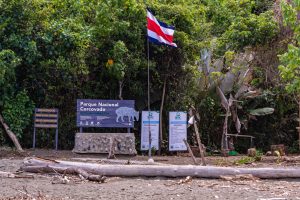Monkeys are one of those animals everybody enjoys looking at! There are 4 different species of them in Costa Rica, each of them is quite unique in its own way. Here we tell you why, and where to find them!
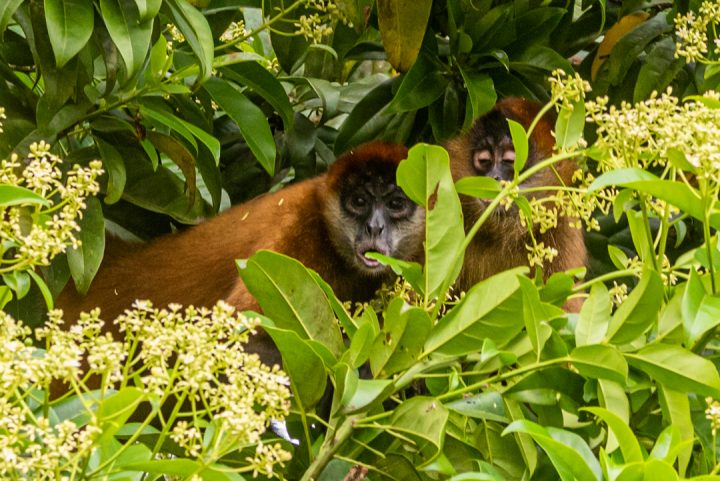
One of my favorite animals is the monkey.
Monkeys are so smart, fast, and beautiful. In Costa Rica, we have four different species of monkeys.
They are divided into 2 different families, the Red-backed Squirrel and White-Faced Monkeys are in the Cebidae family, while the Mantled Howler Monkey and the Central American Spider Monkey are in the Atelidae family.
These fun animals are some of the most common mammals you can find in Costa Rica, although some species can be seen only in specific areas of the country.
One important thing we would like to mention, never feed the monkeys or any other wild animal for that matter in Costa Rica. There is sufficient food around and by feeding them you can make the animal sick or change its natural habits.
Also, we support the #stopanimalselfies campaign, so, please follow the Ethical code for photos and selfies cruelty-free with wildlife.
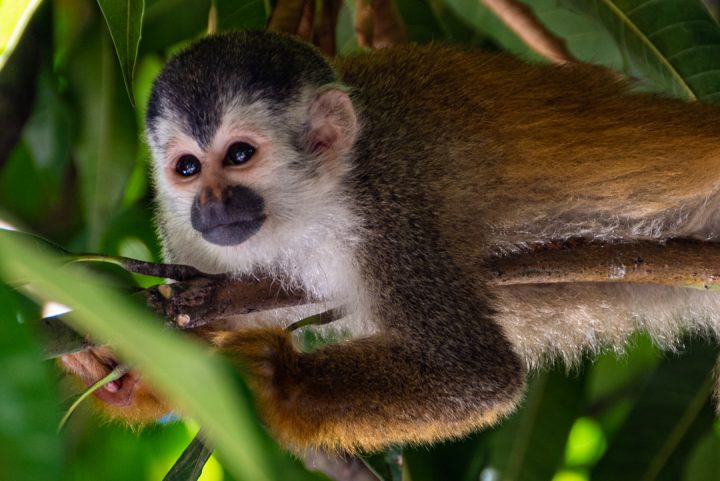
Red-backed Squirrel Monkey | Saimiri oerstedii
This is the smallest monkey in the country and can be found only in the South Pacific of Costa Rica, mostly in secondary growth forests, mostly seen around Manuel Antonio National Park and on the Osa Peninsula.
Usually travels rapidly in groups of 10-40 individuals through the forest, looking for insects that they search for on the trees, but they also enjoy fruits and nectar, especially during the dry season.
Unfortunately, this little fellow is endangered due to habitat loss, illegal captures for pets, and heavy pesticide use.
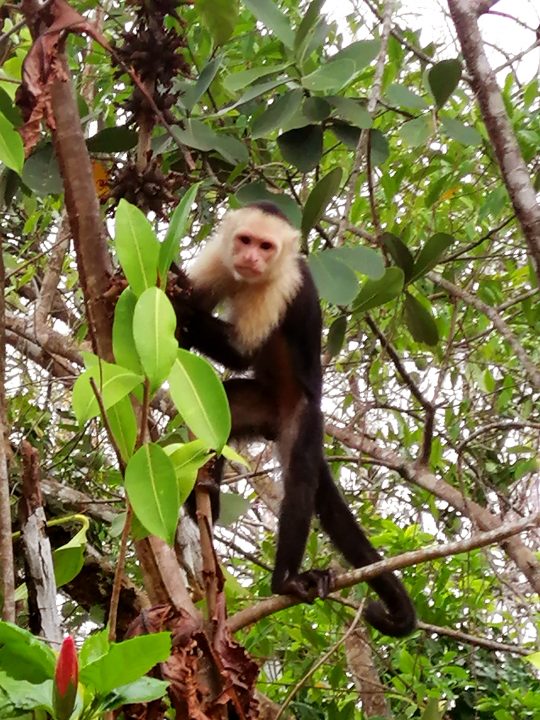
White-faced Capuchin | Cebus capucinus
This is one of the most common monkeys in Costa Rica. It can be found all around the country in all forest types, including mangrove and highland forests. Although they are more commonly seen in dry and lowland rain forests.
The capuchin monkeys are very intelligent, it is proven that they use tools such as sticks to defend themselves, for instance from snakes and human intruders!
They feed on everything, fruits, insects, lizards, and other small mammals such as squirrels and baby coatis, and also birds and their nests.
Also, are great “doctors” because they use different medicinal plants that they rub themselves on their fur to use as repellents, antiseptics, or even fungicides.
White-faced Capuchins are great seed dispersals and when found, they can be very noisy as well as sometimes even aggressive.
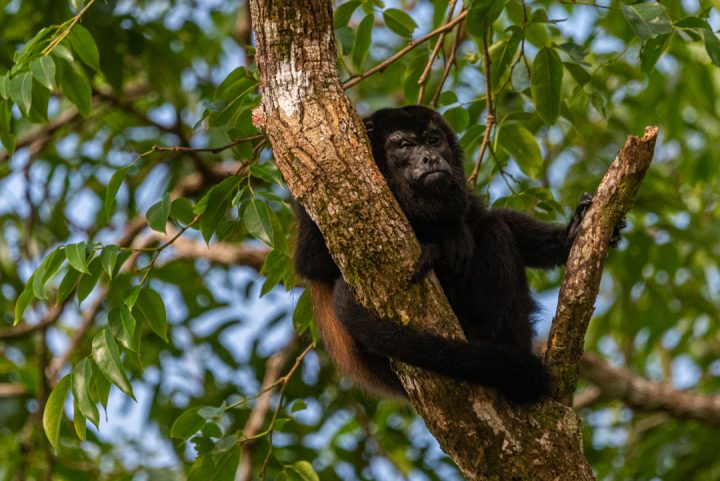
Mantled Howler Monkey | Alouatta palliata
Their name is because of their ferocious voice, which can be heard mostly at sunrise and sunset. The males are the ones that can make the call thanks to an enlarged throat sac and tracheal cartilages that act as resonators.
One of the reasons for this unique call or voice is to mark the troop territory, the roar can travel within the forest for even 1 kilometer, to alert other troops of their presence.
They are the second most common monkey and they also can be found almost everywhere in the country, usually resting on large tree branches. When active, travels slowly, and not too far. Their diet consists mainly of leaves, but also fruits, flowers, and buds.
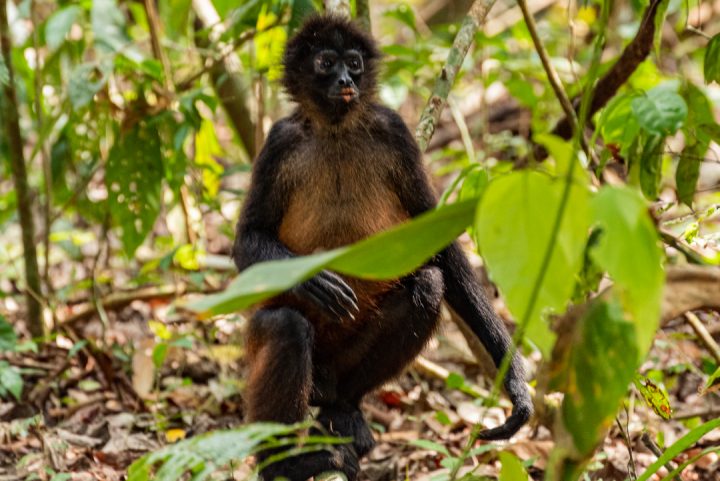
Central American Spider Monkey | Ateles geoffroyi
It is the largest monkey in Costa Rica, about 1 meter long. It is not very common to find it, although can be found throughout the country, mostly in evergreen forests, but also in dry forests near rivers. This is a very fast and agile monkey, usually moving arm to arm graciously.
They are not big fans of human presence, sometimes they can urinate or even defecate on people as a defense, so, highly recommended to wear a hat!
Mainly feed on fruits and leaves, and can be found doing so in small groups, but gathering together at their sleeping tree at night.
Would you like know more or to enjoy the experience to see the Costa Rican monkeys?
Please don’t hesitate to contact us because we are more than happy to tell you more about them and all the different options to make sure the best monkey spot areas are part of your itinerary. Feel free to write to us in Dutch, English, or Spanish.

